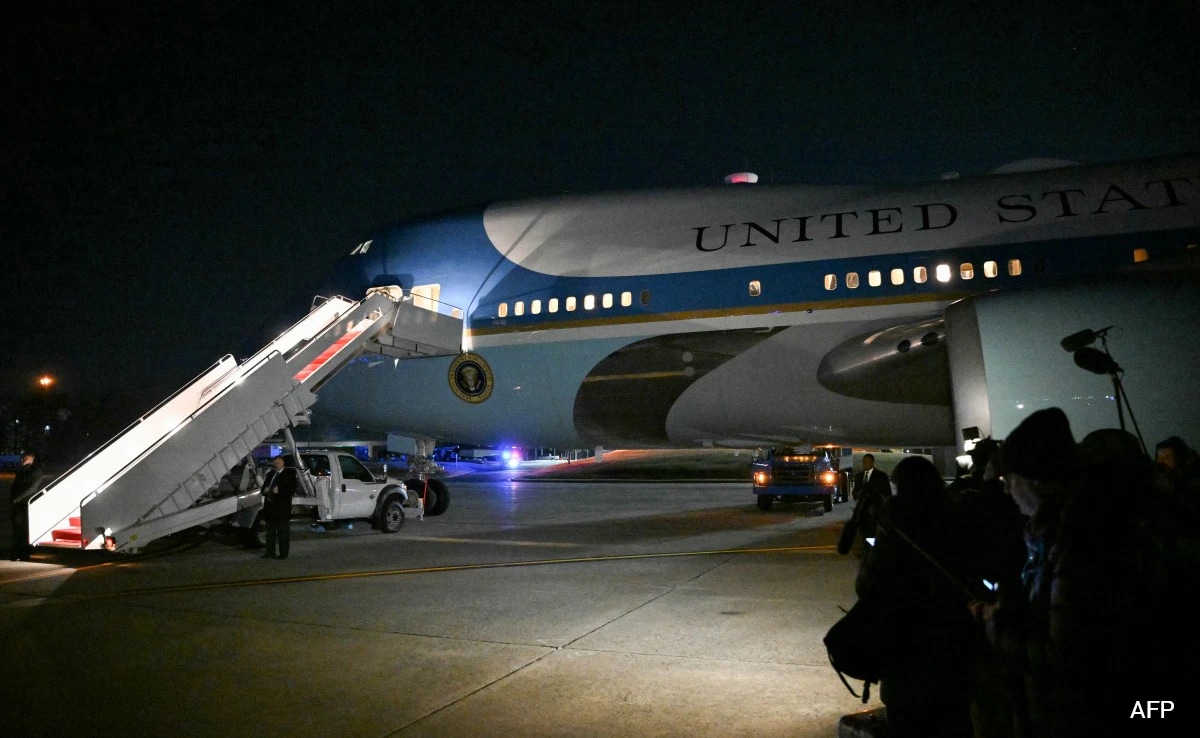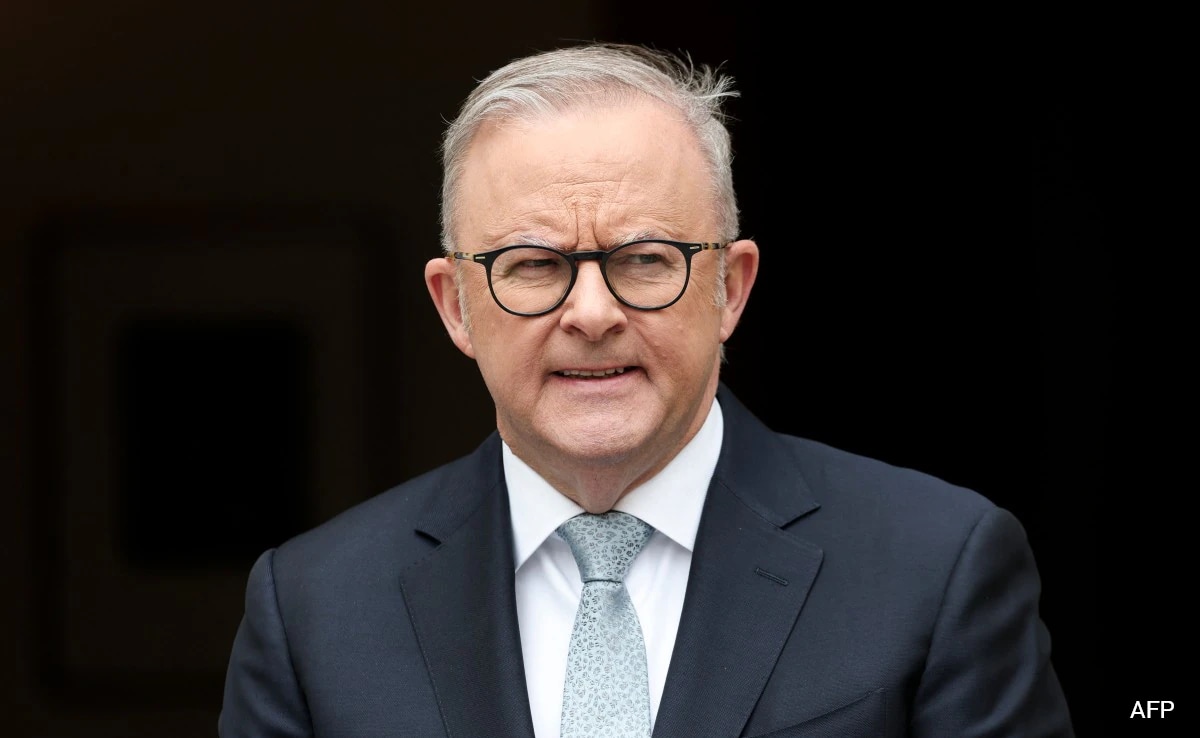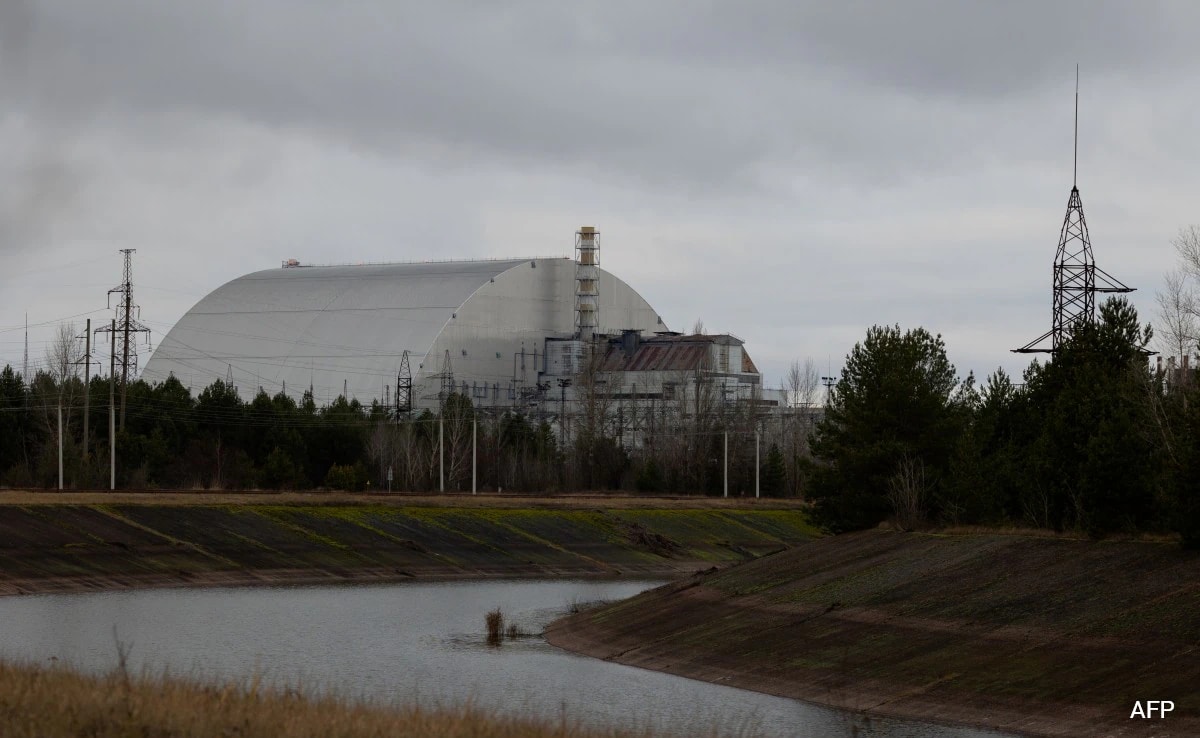Just over 1 million people have fled Ukraine since the Russian invasion began, according to data from the U.N. refugee agency, a massive exodus that is set to become Europeâs worst humanitarian crisis this century. That figure is already on par with the number of refugees who were displaced from Syria, Iraq and Afghanistan in 2015.
Moscowâs troops laid siege to key urban areas Wednesday, advancing on the strategically important port city of Kherson â where Russian state media said the countryâs forces had taken control, but Ukrainian defense officials were adamant that the battle continues. Russian troops were in the streets and had forced their way into the city council building, according to the mayor, however, âthe flag above us is Ukrainian,â he wrote on Facebook.
Meanwhile, the International Paralympic Committee on Thursday reversed an earlier decision that would have allowed Russian and Belarusian athletes to compete at the Beijing Games set to begin Friday. IPC President Andrew Parsons said that while the organization believes sports and politics should not mix, it has come under pressure from an âoverwhelming number of members.â
Hereâs what to know
Newsâ¢
Newsâ¢
Newsâ¢
This city became a haven for people fleeing Kharkiv. But for how long?
Return to menuDNIPRO, Ukraine â The air-raid sirens in Anyaâs Kharkiv neighborhood didnât work. So the blasts from Russian shells came without warning. And then they got closer and louder. They didnât stop.
She and her parents huddled together in their apartment hallway, away from all windows, and stayed put.
For four days, a relentless Russian assault hammered the eastern Ukrainian city with attacks that included the suspected use of cluster munitions in civilian areas, including Anyaâs neighborhood. Finally on Monday, she planned an exit route.
Anya, an 18-year-old artist, packed clothing, her laptop and a sketch pad. She had to leave behind her ukulele and her parents, who evacuated on Wednesday. She and her girlfriend called around for a taxi for about an hour, offering the driver a bribe to take them to the train station despite the ongoing bombardment.
Anyaâs destination was Dnipro, a city about 120 miles southwest of Kharkiv that has yet to see any shelling.
Volunteers in Dnipro have readied schools, cultural centers, empty dormitories and an abandoned hotel as refuges for people fleeing Kharkiv and other nearby eastern Ukrainian cities under siege.
The city is considered safe for now. But Russian soldiers have already advanced on Zaporizhia, about 50 miles south, and could head to Dnipro next.
This is how journalists figure out if all those Ukraine videos are real
Return to menuAmid reports of fighting in Ukraine over the weekend, one video posted on social media captured an apocalyptic scene: multiple fires raging on a highway outside of an apartment building as smoke billowed and loud pops rang through the night.
It was gripping footage, but journalists who looked at it knew that many similar videos have turned out to not be what they seem: A clip of a supposed missile launch in Ukraine had actually been filmed in Turkey in 2016; an Instagram post purporting to show Russian planes over Kyiv actually depicted a Russian military flyover two years ago in Moscow.
The Washington Post only deemed the fire video worthy of publication after a âvisual forensicsâ team spent hours analyzing it and cross-referencing it with maps and other social media posts â eventually pinpointing the exact street corner in Kyiv where the inferno took place.
Newsrooms are increasingly relying on such teams to sort through a torrent of images emerging from the conflict, separating genuine videos from misinformation.
Unlike typical newsroom investigations that rely on private data to uncover stories and verify incidents, visual forensics uses open-source, widely available materials, such social media videos and photos, Google Maps, public databases and weather reports, or high-quality satellite images offered through paid subscriptions.
âThis is a very rigorous process,â said New York Times visual investigations reporter Haley Willis. âWe have similar verification standards as any other journalist. Very few journalists are going to write a story based on what one source is saying, unless it is the source. Weâre the same: we wait for multiple points of corroboration.â
European sanctions on Russia will cost Europe, too, early signs show
Return to menuPARIS â One factor has long underpinned pushback by European governments and business over sanctions on Russia: concern for their own pocketbooks. But in the wake of Russiaâs invasion of Ukraine, the continent has seen a rapid about-face and has already begun to feel the effects.
When Russia annexed the Crimean peninsula in 2014 and backed separatists in Ukraineâs east, European business groups were among the most vocal skeptics of the E.U. sanctions that followed. Just weeks ago, a major German business association was celebrating a âgratifyingâ surge in trade with Russia, while Italian CEOs met virtually with Russian President Vladimir Putin to discuss stronger ties even as the crisis was heating up.
In a matter of days, the tone has changed. Since the invasion began last week, Russia, facing a flurry of sanctions, has become an economic pariah. Even Putinâs defenders among European businesses, especially in Italy and Germany, have rallied behind what Franceâs finance minister this week called an âall-out economic and financial warâ against Russia, the European Unionâs fifth-biggest trading partner. (He later apologized for saying âwar.â)
âIt is beyond any discussion that the German business world supports the imposed sanctions,â read a statement by the chairman of the German Eastern Business Association, a trade group in long-standing favor of robust ties to Russia.
The widespread support for sanctions has already begun to come at an economic cost, on top of those borne from the turmoil of war, affecting energy prices, inflation and the cost of raw materials. Experts warn that backlash could follow.
Paralympics reverses decision and bans athletes from Russia and Belarus
Return to menuAn âoverwhelmingâ response from Paralympians has forced the International Paralympic Committee to reverse its previous position and bar athletes from Russia and Belarus from participating in the Beijing Winter Games.
After announcing on Wednesday that Russians and Belarusians would be allowed to compete as âneutral athletes,â the IPC received a large volume of responses from members, some of which threatened not to compete, IPC President Andrew Parsons said in a statement.
âEnsuring the safety and security of athletes is of paramount importance to us and the situation in the athlete villages is escalating and has now become untenable,â he said. âWith this in mind, and in order to preserve the integrity of these Games and the safety of all participants, we have decided to refuse the athlete entries from RPC and NPC Belarus,â referring to the two countriesâ Paralympic committees.
In a news conference in Beijing on Thursday, IPC spokesperson Craig Spence said there had been a huge change since the initial decision was made, with national Olympic committees not only calling for a ban, but also saying they would not compete unless athletes from Russia and Belarus were excluded. âThat threatens the viability of this event,â he said. âIf we donât act on that, then we are crazy, so we have.â
The Paralympics, an international competition for disabled athletes that is held after the Olympics in the host city, will begin on Friday.
Australia investigates suspicious package sent to Russian Embassy
Return to menuSYDNEY â Australian Federal Police are investigating a suspicious package delivered to the Russian Embassy in Canberra on Thursday. Images taken by bystanders and local media showed Australian authorities in hazmat suits entering a cordoned-off area in front of the embassy, located along a main avenue in the capital.
Police said they had looked at two packages, one of which they determined not to be suspicious, while the other required further analysis. Ilya Roshchenkov, a press secretary at the embassy, told The Washington Post that the package contained âsuspicious powderâ but declined to comment further.
Australia has joined the United States and other nations in imposing sanctions on Russia and earlier this week said it would send $50 million worth of lethal defensive weapons to Ukraine.
Video shows large explosion near Kyiv overnight as Russian troops step up assault
Return to menuA large explosion lit up the night sky in Ukraineâs capital in the early hours of Thursday, local time, according to video footage verified by The Washington Post.
The blast, which was captured by a camera in the cityâs southeastern neighborhoods, took place in a region to the west of Kyiv and appeared to have struck an area far from the city center.
Between late Wednesday night and Thursday morning, air raid sirens have sounded at least six times, urging residents to take shelter, according to messages in the official municipal government Telegram channel.
Russian forces remain stalled on the outskirts of the capital. Unable to substantially push through Kyivâs defense in the north, they have moved westward to further encircle the city. But a senior U.S. defense official warned that these troops also have accelerated the pace of missile and artillery attacks targeting the capital.
Russian oligarchs move luxury yachts to the Maldives
Return to menuAs the Biden administration and its allies step up the enforcement of sanctions on Russian oligarchs to put pressure on those close to the Kremlin, a handful of luxury yachts owned by Russian billionaires have reportedly reached the Maldives, an island nation in the Indian Ocean that does not have an extradition treaty with the United States.
According to shipping tracking data, two pleasure crafts owned by Oleg Deripaska and Alexander Abramov entered the waters near Malé, the capital of the Maldives, on Wednesday. Three more yachts owned by Russian magnates were also seen sailing in the island nationâs waters, Reuters reported, including one belonging to Vladimir Potanin, a Russian nickel tycoon whose net worth is over $25 billion.
Deripaska, a longtime ally of Russian President Vladimir Putin, has been under U.S. sanctions since 2018. Days after Russiaâs invasion of Ukraine, he urged negotiations between Moscow and Kyiv in his Telegram channel.
Several other Russian oligarchs have also put out calls to Putin in recent days. Billionaire Evgeny Lebedev, for one, made a plea to Putin in the Evening Standard, a British newspaper he owns, asking that Russian troops stop âkilling their Ukrainian brothers and sisters.â
Satellite images show destruction in Chernihiv and on outskirts of Kyiv
Return to menuNew analysis of satellite imagery shows the extent of the devastation wrought by Russiaâs invasion of Ukraine, with bridges and roads damaged and homes destroyed in towns and cities across the country, including on the western reaches of the capital, Kyiv.
âThe invasionâs impact on Ukrainians was clearly evident with visual examples of damaged and destroyed homes, residential areas, buildings and factories,â according to the U.S. firm Maxar Technologies, which on Wednesday published a review of additional photos captured Monday, local time.
In a residential area of Bucha, a city in Kyiv oblast, satellite photos show blown-up homes and military vehicles.
In Chernihiv, a strategic northern city on a highway that links the Russian border and Kyiv, and where a fierce battle has taken place in recent days, the images show damaged roads, bridges and homes. Some factories appear to have been leveled.
Previous images captured the same day showed that a massive convoy of Russian ground forces was making its way closer to Kyiv, drawing within 20 miles of the center of the capital. The convoy has made limited headway since Monday, Western defense officials said, stalled by attacks by the Ukrainian military, low morale among Russian troops and botched planning.
Riding the âevacuation trainâ: In Kyiv, a scramble to get out as Russians close in
Return to menuKYIV, Ukraine â There were young parents with their toddler children in strollers. There were middle-aged women helping their elderly mothers up the steps. And there were sons and daughters desperate to reach their parents â before the Russian military arrived.
Many simply wanted their children never to know or feel the pain of war.
As explosions rattled the capital, thousands of Ukrainians headed to Kyivâs central station on Wednesday in the hope of catching an âevacuation train.â Many had waited until the seventh day of the war to flee for a variety of reasons. Some had tried â and failed â to convince elderly relatives to leave. Others had prayed that international sanctions or diplomacy would halt the Russian onslaught.
By Wednesday, though, any shred of hope had vanished as Russia intensified its attacks on several Ukrainian cities. All around this besieged capital, Ukrainians felt a sense that the noose was tightening.
âWe were waiting for the situation to stabilize, but itâs not going to happen,â said Serhiy Ralchenko, 35, who was inside the station with his infant son Danylo in a stroller. âThere is no more time to wait.â
.png)











 English (United States) ·
English (United States) ·  Turkish (Turkey) ·
Turkish (Turkey) ·